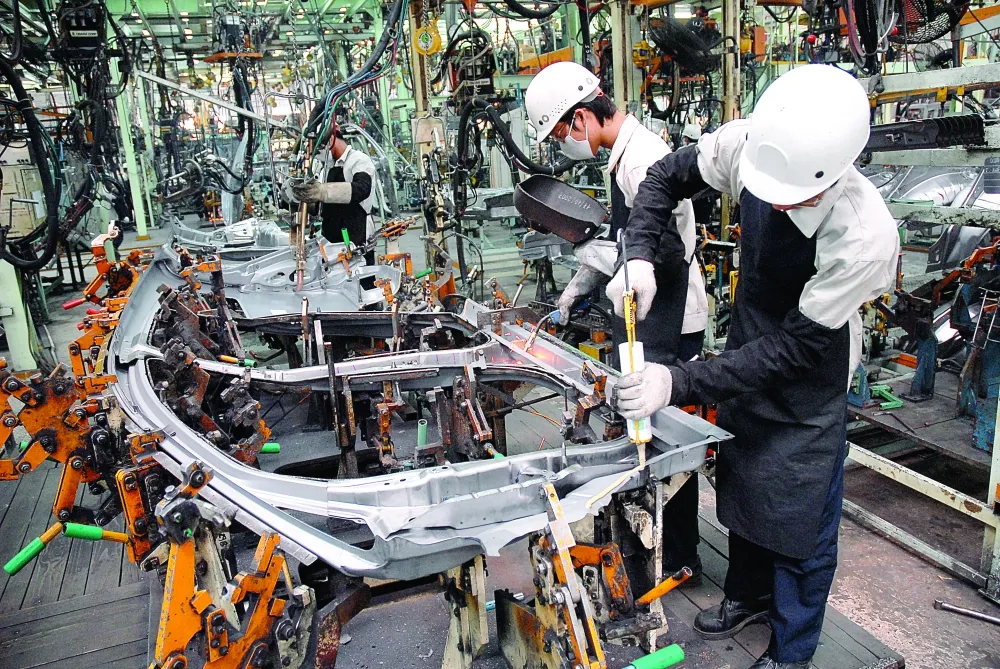
JOURNALIST: - Despite significant global economic fluctuations and negative impacts in 2023, foreign direct investment (FDI) continues to flow into Vietnam in substantial amounts. How do you assess this situation?
Professor Dr. NGUYỄN MẠI: - Vietnam remains an attractive destination for foreign investors, not only in terms of business opportunities but also as a desirable place to live. Consequently, Vietnam is likely to achieve its target of attracting USD 18-19 billion or more in FDI. However, Vietnam's investment attraction policy has shifted from an indiscriminate approach to a selective one, prioritizing quality, efficiency, technology, and environmental protection as the primary evaluation criteria.
In the past, Vietnam's need for various resources necessitated attracting FDI enterprises to invest in the country. This strategy aimed to create employment opportunities for Vietnamese people and increase domestic production to meet both domestic and export demands. However, the capabilities of Vietnamese enterprises have now grown sufficiently to meet domestic market needs, and some Vietnamese companies have even gained recognition in the international market. Therefore, Vietnam no longer needs to blindly attract FDI at all costs; instead, it can prioritize high-quality FDI inflows. Consequently, focusing solely on numerical statistics no longer seems overly meaningful.
- Sir, this year Vietnam had to compete strongly with India and Indonesia. Compared to them, what advantages does Vietnam have to attract foreign investors?
- With a population of 1.4 billion people, India is a huge consumer market that any business wants. The high-tech industry in India is also very developed, as they have a system of research and training of experts and workers working in this industry. This is also a factor that helps giants in the global technology industry come to India.
For Indonesia, a country with a population 3 times that of Vietnam and a GDP 2.5 times higher, in terms of economic scale, we are still inferior to them. At the same time, wages and price levels in Indonesia are lower than in Vietnam, which gives them an advantage in cheap labor. In particular, Indonesia has some very good policies, that is, the president personally decides and approves large projects, which has reduced many cumbersome procedures, harassment, and corruption.
However, overall, Vietnam's advantages are not small. We have a stable political system and security situation. Vietnam's population is currently about 100 million people, not equal to Indonesia and India, but not low either. Vietnam is also one of the few countries that have 16 new-generation free trade agreements (FTAs) with most economic superpowers. Therefore, when investing in production in Vietnam, the goods of these enterprises enjoy origin privileges and are exempted from certain taxes and fees when exported to trading partners.
In addition, foreign investors highly appreciate Vietnam's determination to reform administrative procedures, streamline staffing, and improve the ethics of officials and employees, in order to reduce cumbersome procedures and harassment. Based on such advantages, I affirm that Vietnam is still a promising destination for foreign investors.
- One of the issues of concern to many foreign investors in 2023 is the global minimum tax rate that Vietnam is considering building and implementing. How will this impact the prospect of attracting FDI capital in the near future, sir?
- Indeed, one of the concerns of foreign investors today is that Vietnam is completing the global minimum tax as initiated by the Organization for Economic Cooperation and Development (OECD). This is a tax levied on large enterprises and multinational companies with large revenues but investing in countries with low tax rates or "tax havens" to avoid taxes and there is a danger of unfair competition.
Of course, applying the global minimum tax rate will hit the pockets of businesses, so no "big guy" wants it, but Vietnam must do it because this is not only a national interest, but also an international responsibility in combating money laundering and tax evasion. If there is a delay in implementing the global minimum tax, it could cost us several billion dollars in tax revenue, which is a financial loss.
Therefore, how to build a global minimum tax to harmonize the interests of Vietnam and foreign investors is both an opportunity and a challenge for Vietnam. Steps to Harmonize Interests: (1) Amend and adjust many laws, circulars and decrees to comply with the global minimum tax rate. (2) Negotiate with each taxable FDI enterprise to find a common voice. (3) Develop policies and mechanisms to balance the tax they have to pay.
If Vietnam can successfully implement the global minimum tax while harmonizing the interests of Vietnam and foreign investors, the investment environment will certainly improve. Therefore, there is no need to be overly concerned that the application of the global minimum tax will reduce Vietnam's competitiveness in attracting FDI.
- Thank you very much.




















